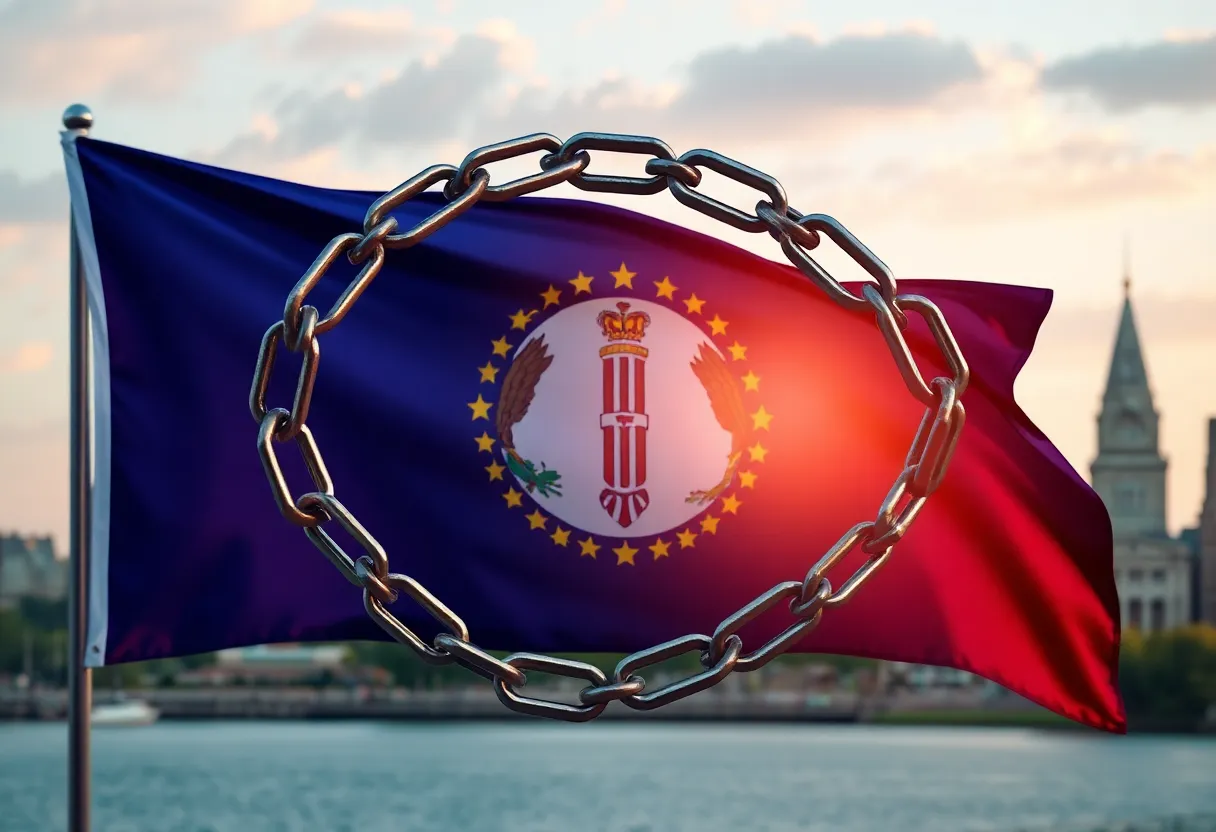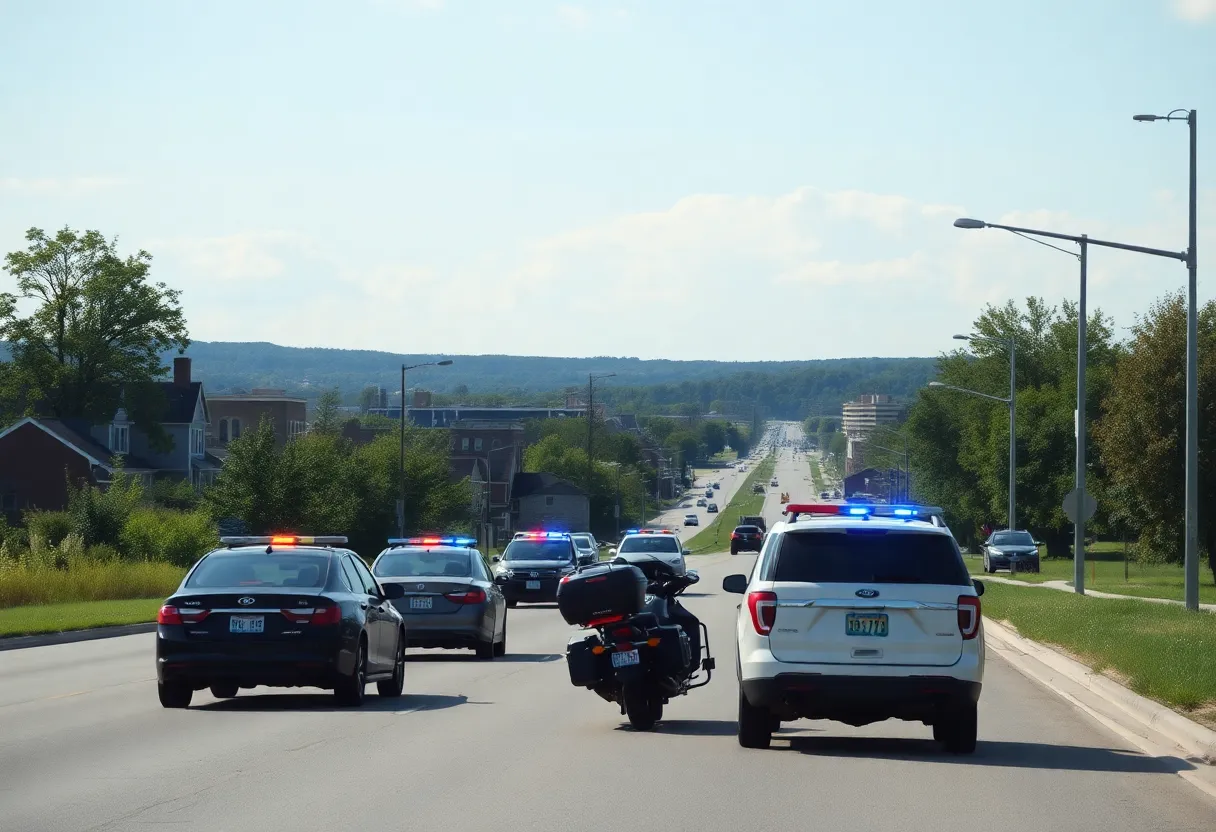News Summary
In a significant move, Kentucky lawmakers are advocating to eliminate the state’s constitutional clause permitting slavery and involuntary servitude as punishment for crimes. This outdated provision has raised concerns about its impact on the rights and treatment of incarcerated individuals, particularly within marginalized communities. Representative George Brown Jr. is leading efforts for a constitutional amendment, aiming for bipartisan support as they seek to address the detrimental effects of this clause ahead of the 2026 election.
Kentucky Takes a Stand: Lawmakers Propose to End Slavery Exception in State Constitution
In the heart of Kentucky, a significant conversation is unfolding as lawmakers step forward with a proposal that has the potential to change the fabric of the state’s Constitution. The bizarre clause that currently permits slavery and involuntary servitude as a punishment for crime might finally face its much-needed *day of reckoning*. Your eyes aren’t deceiving you; this clause has been sitting in Kentucky’s Constitution since it was ratified in 1891. For many, the realization that their state still allows such an exception feels like a dark and embarrassing reality.
A Personal Perspective on Incarceration
With personal stories emerging continuously, one individual has bravely shared his experiences from behind bars. Savvy Shabazz, who spent over six years across nine different Kentucky institutions, highlights the grim reality faced by those incarcerated in the state. Working for mere pennies – sometimes as little as 63 cents a day – Shabazz believes this slavery exception clause continues to *perpetuate oppression and dehumanization*, particularly among marginalized communities.
The Bizarre Clause in the Constitution
The clause in question states, “Slavery and involuntary servitude in this state are forbidden, except as a punishment for crime, whereof the party shall have been duly convicted.” Individuals like Shabazz argue that this outdated language is not just a remnant of a forgotten era; it is an active contributor to societal inequalities that have been deeply entrenched in Kentucky’s laws.
Legislative Efforts on the Horizon
State Representative George Brown Jr. from Lexington is championing House Bill 121, aiming to eliminate this troubling exemption through a constitutional amendment. He is striving for bipartisan support, hoping that Republicans and Democrats will join forces on what many see as a moral imperative when the legislature reconvenes. The amendment wouldn’t just need support from both houses of the state legislature; it would also require a majority approval from voters during the 2026 election.
The Broader Impact of the Clause
The *repercussions of the slavery clause* extend far beyond just the individuals incarcerated. Advocates for reform, like Patricia Gailey from Abolish Slavery Kentucky, describe the consequences of this clause as detrimental, inflicting *exploitation of labor*, *destruction of health and dignity*, and *unsafe working conditions* for those behind bars. The harsh reality is that prison labor conditions often do not prepare inmates for reintegration into society, leaving them at a disadvantage upon release.
Statistics Paint a Stark Picture
With approximately 37,000 Kentuckians currently incarcerated, a staggering 19,000 of whom are housed in state prisons, the implications of the slavery clause are particularly pertinent. Adding to the unsettling reality, Black Kentuckians represent 9% of the state’s population but make up a troubling 21% of the prison population. This over-representation underscores the urgent need for reform, as advocates argue that the inequality symbolized by this clause contributes to the cycle of disadvantage faced by many Black Kentuckians.
An Uncertain Future
Looking ahead, supporters of the amendment express hope despite the uphill battle ahead. Kentucky voters have a mixed history when it comes to constitutional amendments, and previous attempts, including a failed proposition in 2024, illustrate the challenges that lay in the path of this crucial change. Advocates stand firm in their belief that until this offensive clause is completely removed, all Kentuckians indirectly become *complicit in crimes against humanity*.
As these discussions unfold and the legislature prepares for its next session, one thing remains clear: the conversation around the slavery exception in Kentucky’s Constitution is not just an academic exercise but a necessary step toward equality and dignity for all residents.
Deeper Dive: News & Info About This Topic
HERE Resources
Additional Resources
- WLKY: Proposed Constitutional Amendment to Ban Slavery in Kentucky
- Kentucky.com: Kentucky Lawmakers Push to End Slavery Exception in Constitution
- WDRB: State Lawmaker Proposes Constitutional Amendment to Remove Slavery Exception
- Kentucky Today: Amendment Would Remove Slavery Exception from State Constitution
- Kentucky Lantern: Supporters of Ending Slavery in Kentucky Line Up Behind Lawmakers’ Bill
- Wikipedia: Slavery in the United States
- Google Search: Slavery Exception Kentucky Constitution
- Google Scholar: Kentucky Slavery Exception
- Encyclopedia Britannica: Slavery
- Google News: Kentucky Slavery Exception







